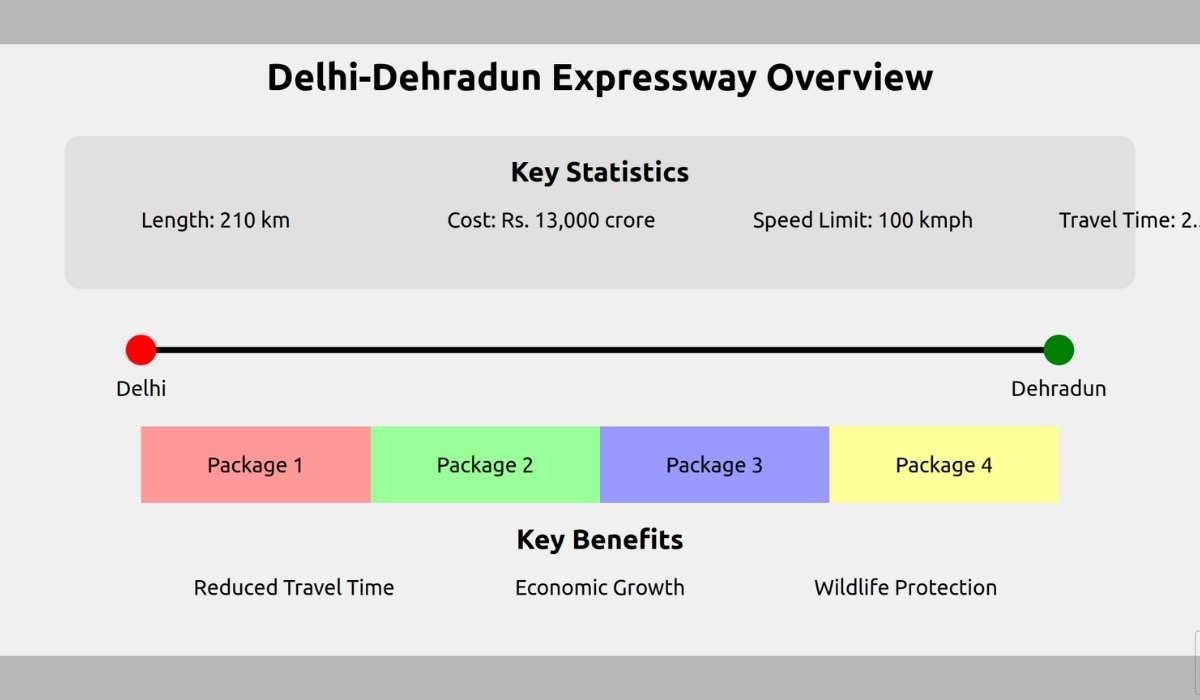Buying or selling a property in an under construction project can be a complex and daunting task. However, with the right knowledge and strategies, you can navigate the resale process with confidence and maximize your investment returns. In this comprehensive guide, we’ll walk you through the essential aspects of resale in under construction projects, providing valuable insights for both buyers and sellers. Whether you’re a seasoned investor or a first-time buyer, this article will equip you with the tools and information you need to make informed decisions and achieve your real estate goals
Buyers: Identifying the Perfect Property in Resale
Assessing Market Demand:
- Resale activity in under construction projects indicates a strong demand in specific areas of Noida and Gurgaon.
- A thriving resale market suggests that the overall market is moving at a brisk pace.
Zeroing in on the Ideal Project:
- Once you’ve identified your preferred project, engage with multiple channel partners to access a wider range of inventory options.
- Different channel partners often have exclusive listings, giving you a more diverse selection to choose from.
Patience Pays Off:
- When exploring resale opportunities, exercise patience and take the time to find the property that aligns with your requirements and preferences.
- Unlike purchasing directly from a developer, resale offers greater flexibility in terms of pricing and inventory availability.
For more tips on identifying the perfect resale property, visit our blog at https://realestateblog.co.in.
Due Diligence is Key:
- Meticulously review the builder-buyer agreement to verify all relevant details, such as property size, floor, applicant information, and reseller’s address.
- Obtain a statement of account (SOA) from the seller to gain clarity on the total payment, interest, and any outstanding dues.
- Ensure that the seller possesses a No Objection Certificate (NOC) for resale or verbally confirm with the developer.
Structuring the Deal:
- Consider two primary deal structures: all-inclusive or deposit plus premium.
- In an all-inclusive deal, the seller has purchased the property at a specific price (e.g., 2 crores), and you acquire it at a higher price (e.g., 2.5 crores), encompassing all charges.
- In a deposit plus premium arrangement, you pay the seller the deposit amount along with a premium, while the remaining sum is paid directly to the developer based on construction milestones.
Sellers: Optimizing Your Investment Returns
Financial Preparedness:
- Ensure that you have the financial capacity to see the project through to completion.
- Avoid resorting to distress sales, as they may undermine the true value of your inventory.
Recognizing Your Inventory’s Worth:
- Understand that your inventory may possess unique advantages over the developer’s current offerings.
- Factors such as being in an earlier phase, offering quicker possession, and featuring distinctive attributes can justify a higher resale price.
Navigating Capital Gains Tax:
- Familiarize yourself with the capital gains tax implications when selling an under construction property.
- Tax treatments vary based on factors such as NRI status and the holding period (short-term vs. long-term).
- Stay tuned for our upcoming in-depth video on capital gains tax to gain a comprehensive understanding of this critical aspect.
Brokerages and Transfer Charges:
- Brokerages generally amount to 1% of the total deal value.
- Transfer charges differ based on the developer’s policy; some offer complimentary first transfers, while others impose charges.
- Typically, the buyer and seller share the transfer charges, but this can be negotiated as part of the overall deal.
Developers’ Resale Control:
- Certain developers exercise control over resale during the under construction phase to maintain price stability.
- Projects with controlled resale often experience higher appreciation, as the developer aligns prices with their fresh inventory.
For more insights on optimizing your investment returns, visit our blog at https://realestateblog.co.in.
Asserting Your Rights as a Seller:
- If the builder-buyer agreement permits resale after a specific milestone or duration, the developer cannot legally withhold the NOC.
- Be persistent and leverage the support of your channel partner in securing the NOC.
- If the developer breaches the agreed terms, consider pursuing legal action to safeguard your rights.
Transfer Process and the Trust Factor:
Drafting the Agreement to Sell:
- Upon finalizing the deal, draft a comprehensive agreement to sell that outlines all terms and conditions, including the payment schedule.
- To enhance security, consider registering the agreement in court, particularly if there are any doubts or concerns.
Handling Loan Transfers:
- If the seller has an existing loan on the property, it can be internally transferred to the same bank if the buyer also opts for a loan.
- If the buyer doesn’t require a loan, they can directly pay the seller, who can then close the existing loan.
TDS and NRI Sellers:
- Be mindful of the TDS (Tax Deducted at Source) implications, particularly if the seller is an NRI.
- Share your insights on TDS treatment and capital gains tax in the comments section to benefit other readers.
Navigating State-Specific Processes:
- The resale process may have slight variations depending on the state.
- In Noida, the buyer’s name is endorsed and added to the existing builder-buyer agreement.
- In Haryana (Gurugram), the builder-buyer agreement is registered in court.
- Maharashtra has its own unique process.
Conclusion:
Partnering with the Right Channel Partner:
- When purchasing a property for the first time, select a well-established channel partner with strong ties to the developer.
- A supportive channel partner can assist with refunds, installment delays, NOC procurement, and navigating transfer processes.
Empowering Yourself with Knowledge:
- Educate yourself about the resale process, market dynamics, and legal aspects.
- Leverage free resources available on YouTube and other platforms to deepen your understanding.
Building Trust and Transparency:
- Resale transactions during the under construction phase heavily rely on trust between parties.
- Be cautious of potential fraud and take necessary measures to safeguard your interests.
Buying or Selling? We’re Here to Help:
- If you have a property to sell in Noida or Gurgaon, share the details with us via WhatsApp.
- If you’re in the market to buy a resale property, provide us with your specific requirements, including project, size, and preferences, and we’ll assist you in finding the ideal match.
By following the strategies and insights outlined in this comprehensive guide, you’ll be well-prepared to navigate the resale process in under construction projects. Conduct thorough due diligence, understand market dynamics, and seek the support of trusted channel partners to ensure a successful transaction.
If you found this article informative and valuable, don’t forget to like and share it with your network. For more expert insights, real estate advice, and the latest market updates, visit our blog at https://realestateblog.co.in. Subscribe to our newsletter to stay ahead of the curve and make informed real estate decisions.
Until next time, happy investing!
Unlock Your Dream Home Today!
Get personalized real estate insights delivered straight to your inbox.
Buyers should assess market demand, identify ideal projects, exercise patience, conduct due diligence, and understand the deal structures available.
Buyers can engage with multiple channel partners to access a wider range of inventory options and find a property that aligns with their requirements.
Due diligence is crucial as it involves reviewing the builder-buyer agreement, obtaining a statement of account, and ensuring the seller has a No Objection Certificate (NOC) for resale.
The two primary deal structures are 'all-inclusive' where the property is sold at a higher price encompassing all charges, and 'deposit plus premium' where the buyer pays a deposit along with a premium to the seller.
Sellers should ensure financial preparedness, recognize their inventory's unique advantages, navigate capital gains tax implications, and understand brokerage and transfer charges.
Sellers should familiarize themselves with capital gains tax implications based on factors like NRI status and the holding period of the property.
Sellers have the right to demand the NOC from the developer if the builder-buyer agreement permits resale after a specific milestone or duration.
The agreement to sell should outline all terms and conditions including the payment schedule and can be registered in court for added security.
The resale process may differ in states, with variations in how the buyer's name is endorsed or how the builder-buyer agreement is registered.
Partnering with a reliable channel partner can assist with refunds, installment delays, NOC procurement, and navigating transfer processes, enhancing the overall transaction experience.
DISCLAIMER
The information provided on this website is for general informational purposes only. While we strive to keep the content up-to-date and accurate, we make no representations or warranties of any kind, express or implied, about the completeness, accuracy, reliability, suitability, or availability of the information, products, services, or related graphics contained on this website.
In no event will we be liable for any loss or damage including without limitation, indirect or consequential loss or damage, or any loss or damage whatsoever arising from loss of data or profits arising out of, or in connection with, the use of this website.
Real Estate Investment Risks
Real estate investments involve significant risks and market volatility. Property values, rental rates, and market conditions can fluctuate. Past performance is not indicative of future results.
Before Making Real Estate Decisions
Before making any real estate decision, we strongly advise you to:
- Conduct thorough due diligence
- Consult with qualified legal, financial, and real estate professionals
- Carefully review all relevant documents and contracts
- Consider your personal financial situation and investment goals
This website does not provide legal, financial, or investment advice. All content is for informational purposes only and should not be construed as professional advice or recommendations.
By using this website, you acknowledge and agree to these terms. We reserve the right to modify this disclaimer at any time without notice.







